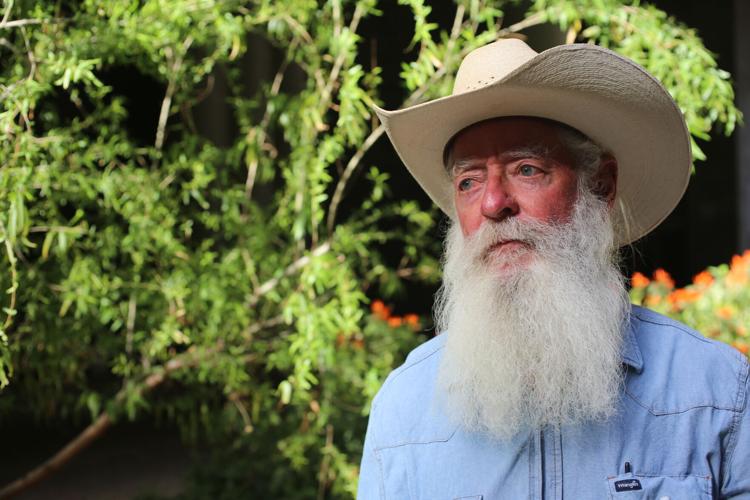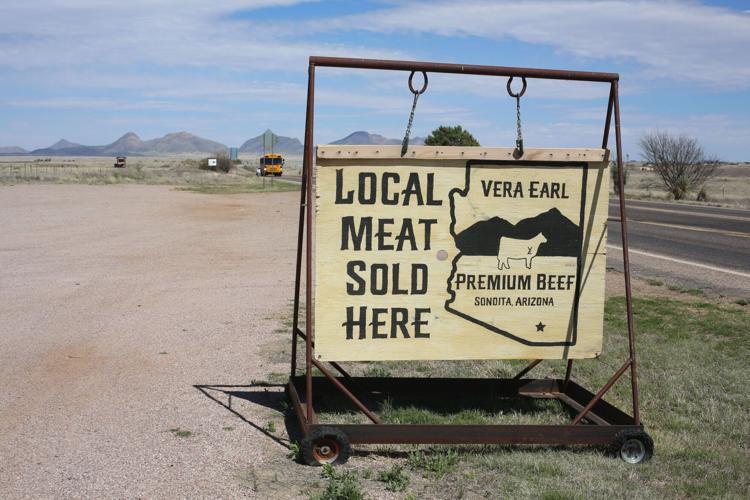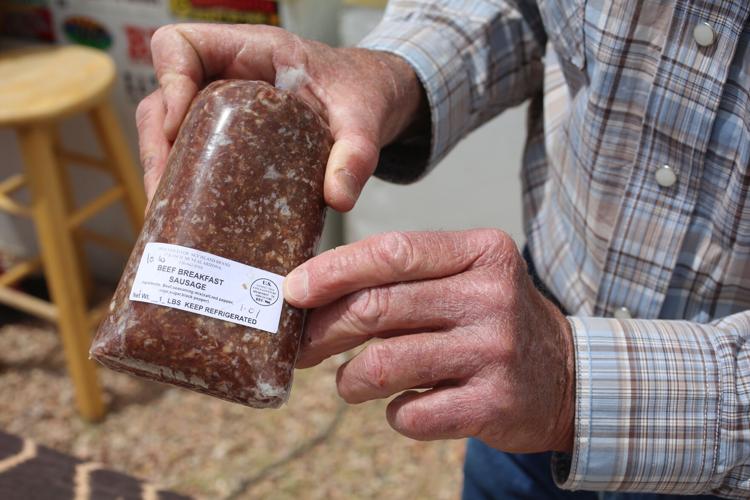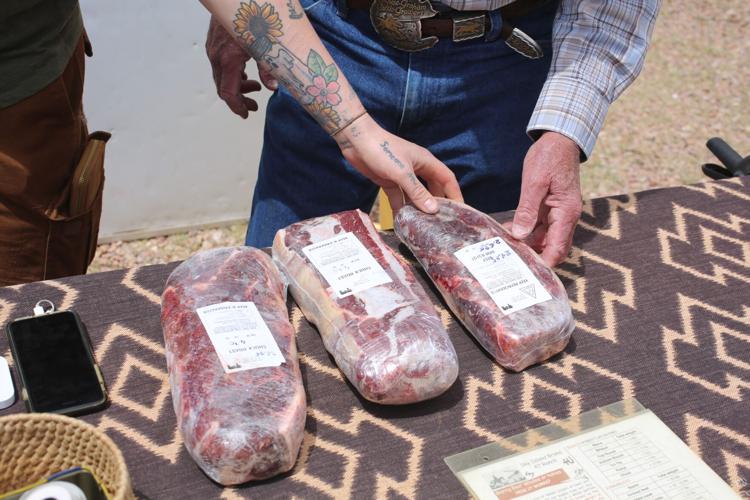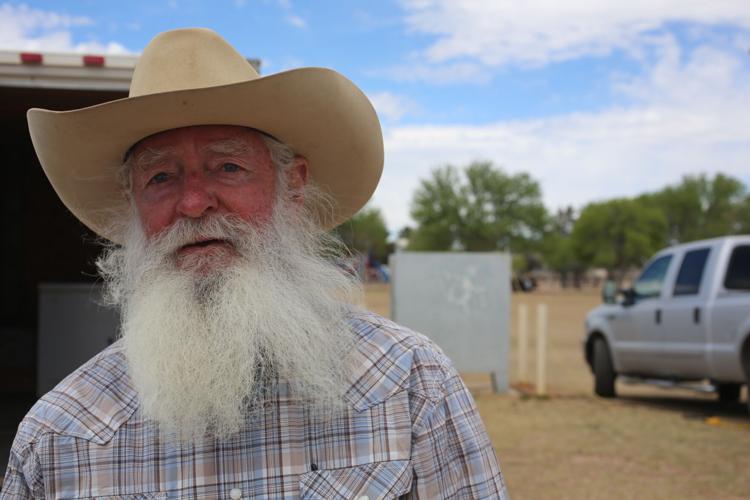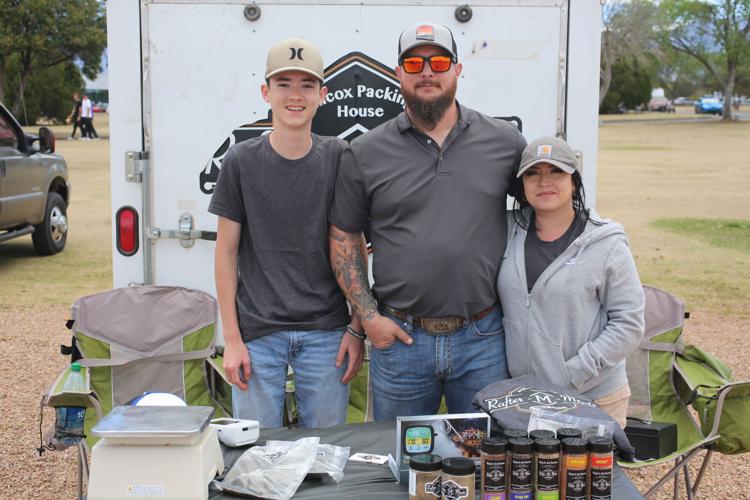Tucson is a cow town. A sign says as much, advertising a boot store on the side of Interstate 10.
Our oldest restaurants are testimony of our heritage: El Charro, named for Sonoran caballeros; El Corral, built in a ranch house; Li’l Abner’s Steakhouse, where most nights they grill hundreds of pounds of steaks over open mesquite flame. Contemporary restaurants renew our city’s connection to the cattle industry — acclaimed Bata and 5 Points source their beef and other proteins from local ranchers.
Even the most casual visitors will see Silver Saddle Steakhouse’s neon sign from the highway, or the University of Arizona’s Campus Farm occupying the heart of our city on the banks of the Rillito Wash.
The farm, built in 1909, fulfills a deeply held part of the UA’s mission as a land grant university, to serve Arizonans through agricultural teaching, research and extension. While many of our cultural institutions nod to our cowtown heritage, this is one of the only sites where it lives today: students raise, research and harvest cattle on the historical site.
Though the farm has been active for over a century, in recent years it has been the center of controversies ranging from community activists fighting for its historical status designation to the suspension of their most recent manager due to animal welfare violations to an embezzlement scheme by the professor running the student-led butcher shop. This shop sells the meat products that are processed and butchered at the university’s Food Product and Safety Lab (FPSL), also located on the Campus Farm.
Last year, a week before Christmas, the Food Product and Safety Lab sent out a slew of phone calls and emails. The lab just received a $10.9 million grant from the Arizona Board of Regents to renovate the meat processing facility and update its 50-year-old cooling system. The slaughterhouse would be closing down for more than a year of renovations in January, only two weeks away.
Nearly everyone who worked at the facility was laid off — some just days before Christmas, while others were able to stay on until they finished butchering existing inventory and clearing out the facility in February.
The closure abruptly quashed long careers and stymied those who planned their lives around their employment at the UA: from their children's educations to their retirement.
Ranchers faced different consequences. The lab was shutting down for their use in only two weeks. They would have to find other places to process the animals they had scheduled. Ranchers had to scramble: meat processing facilities were (and are) in high demand and the last-minute notice affected ranchers’ bottom lines.
“The week before Christmas a lot of places aren’t picking up their phones, they are finishing things up for the holidays. We had to wait two to three weeks [to hear back],” said Rowlynda Moretti, who owns Carrisito Ranch in Santa Ysabel, California, with her family.
In that three-week period, Rowlynda’s business was suffering. “You’re feeding cattle; wasting money to feed cattle. Beef is like fruit; you get ripe at a certain time,” she said.
Despite this hardship, she appreciates the work the UA did as a place of learning. “I started going to them at the beginning of me doing this because it was an educational facility. I did feel like I learned so much [with] them,” she said. She shipped her cattle from California because the UA was the best fit for her needs.
The university has declined to comment on why ranchers and workers were notified of the Food Product and Safety Lab’s closure on such short notice. The only information they provided was a link to an official timeline, which states that design did not begin until several months after the lab closed and that construction will not begin until at least a year after the lab closed. Calls to the person in charge of the project — the executive director of engineering, planning and design Ralph Banks — were not returned.
Big blow for small farms
The Food Product and Safety Lab occupied a rare position in the Arizona cattle industry: it was a USDA-inspected plant that took contracts with smaller, local farmers who typically don’t have large enough contracts to get into the four other USDA facilities in the state, which are each in high demand. (USDA certification allows these ranchers to sell their beef both in and out of state.)

Dennis Moroney points out the USDA symbol on some ground beef. The Food Product and Safety Lab at the UA was the only USDA-certified facility in Arizona that served small to mid-size ranches like Dennis' Sky Island Brand.
“Clearly there’s a large slaughterhouse in Arizona, but they’re not set up to do midsize operations like us, who have little custom niches,” said Judy Prosser, who owns Bar T Bar Ranch with her family near Winslow. “So we had to go out of state, which made the freight more costly. We’ve done that before, for years we’ve gone other places. We were excited to hear that the UA could do work for us, and they have been doing it for five years. We were really pleased that they are doing the work for us.
“I know I’m not the only one affected,” she said. “There are tons of people they did work for. Different sizes and operations. I don’t know what [these ranchers] have been able to do, if they’ve found people to do their work or not.”
Judy’s bottom line is now dependent on the cost of shipping her beef out of state to be processed. For the sake of her business, she was hoping the UA would reopen by this summer: the university’s current timeline has the plant reopening in September 2024.

When the University of Arizona's Food Product and Safety Lab closed suddenly one week before last Christmas, Vera Earl had to rush to get their cattle in at Cattlemen's Processing, the last USDA-certified slaughterhouse in Southern Arizona.
Some ranchers were able to pivot. Vera Earl Premium Beef, a ranch in Sonoita, was able to squeeze onto the list at Cattlemen’s — now the only USDA plant in Southern Arizona — which is only able to process cows.
Other ranchers sought to open their own facilities, investigating how much a prefabricated meat processing plant would cost them to install. This wasn’t a viable option for anyone I spoke to, though. Even if they could afford it, they faced steep political resistance: many homeowners don’t want to be neighbors with a slaughterhouse. When searching for a site to open up her own facility, San Rafael Valley rancher Sidney Spencer couldn’t find a property that had the right zoning.
E & R Pork, run by Rodney Miller, used the University of Arizona to harvest his pigs for over 20 years. Bata exclusively uses his pork, and he has contracts with other restaurants like Maynards, Mountain Oyster Club, Mama’s Hawaiian and the dining programs at Desert Diamond and Casino del Sol. When he used them regularly, “We’d spend 150 (to) 200,000 dollars there a year like it was nothin’,” Rodney said.
“I quit depending on them back in 2018,” he said. Rodney sought other facilities for his processing work after he lost a monthly contract with Bisbee Breakfast Club for 5,000 pounds of pork because FPSL couldn’t keep up with his demand.
Yet, he still used the FPSL to harvest pig organs for medical use.
“I supply kidneys to a place that makes kidney dialysis machines up in Phoenix, supply pancreases and stuff all over the state. Hospitals, Mayo Clinic,” Rodney said — until the Food Product and Safety Lab closed in January. “You will not believe the amount of problems [the closure caused],” he said.
The nearly two-year closure of the FPSL means some ranches that depended on the lab won’t be able to survive without its services. Dennis Moroney, who co-owns the Sky Island Brand ranch in McNeal with his wife, is contemplating an early retirement due to the UA closure.
“My product is all-natural grass-fed or range-fed beef and lamb,” Dennis said. “We also sell a few other things, but the beef and lamb are the mainstay of our business. I’ve used the UA for about 25 years.” Sky Island Brand has provided beef for local restaurants like 5 Points.

Rafter M Meats offers one day of ADA-inspected processing a week at their meat packing plant in Willcox, Arizona. It's one of the only local options left for small to mid-size Arizona ranchers.
His backup slaughterhouse, Rafter M Meats in Willcox, has a different setup than the UA. Rafter M relies mostly on custom processing, when customers purchase a whole cow directly from the rancher for their own consumption. The custom cuts won’t be resold at farmers markets, grocery stores or restaurants, so they don’t need to be processed under inspection.
This trend has enabled small, local ranchers across Arizona to move away from larger-scale meatpacking companies. Enough customers buy their beef this way to keep uninspected facilities in business: most can’t keep up with the demand. Rafter M, for instance, only hires an Arizona Department of Agriculture inspector for one day — eight hours — of work each week, while mostly performing halal services for local markets like Al Basha Grocery.
“I’ve been able to get some animals in, but not enough,” Dennis said in April. “We’re looking through our inventory and thinking, we have four months left to do our business and then we’re done.”

Dennis Moroney holds two versions of the same cut of beef: on the left, USDA inspected beef from the UA facility; on the right, ADA inspected beef processed at Rafter M Meats.
“This was not how I saw or envisioned my career ending,” he said. “And yet, the options don’t look real good right now. We have cut our sheep numbers to less than one-third of what we had this time a year ago. We’re going to have to do something like that with our cattle.
“Part of the thing with live animals — we call it selection. The animals that are good mothers, that produce healthy babies and that survive well in the rangeland condition and stuff. You build up a certain kind of wealth in terms of genetics. You really can’t see it just by looking at the animals. But we know these animals.
“With the cattle, they’re a matrilinear culture. The mothers with their daughters — oh God, I’m sorry, I get all choked up when I start talking about this stuff. I’m sorry — they’re like, years and years of working with the same family groups. And of course they’re just cows, but they’re not just cows. They’re our cows. And the perfect animals for the kind of landscape we asked them to make a living in. [Alive,] they have no value to the outside world. And have huge, huge value to me and my family,” Dennis said.

Dennis Moroney and an employee work the Sierra Vista Farmers Market.


